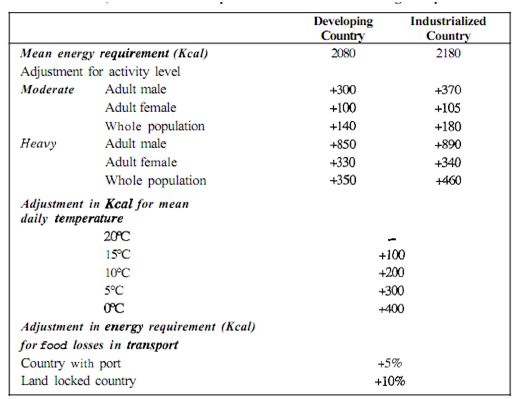Define needs for Nutritional Relief Programme and Interventions?
A general feeding programme is required during first stage when the affected population does not have sufficient food to meet the nutritional needs. If the population is entirely dependent upon external aid, the general ration must provide for a minimum intake of 2100 Kcal per person per day and more, if population is already malnourished, exposed to cold, or engaged in heavy work. Refer to Table where the requirements based on activities are given.

Besides being nutritionally balanced, the general ration should be acceptable culturally, fit for consumption and easily digestible for children and other affected vulnerable groups. Although nutrient needs are different for different age groups in a family but same general ration components should be provided for each person, regardless of age, families would divide ration among themselves. The general ration is normally provided dry, for cooking at home.
For distribution of cooked food, locally available fuel and local methods for making fire can be used. Individuals may be asked to collect and bring wood, cow dung etc. For fuel and if collection is difficult or there are chances of deforestation in area, kerosene oil should be used as an alternative.
In second stage, supplementary feeding programme (SFP) is given for vulnerable groups and therapeutic feeding programmes (TFP) are provided to those already severely affected due to malnutrition or deficiency diseases as mentioned in earlier sections. For distribution of items, ration cards should be issued and maintained. Effectiveness of programme should be monitored at the regular intervals.